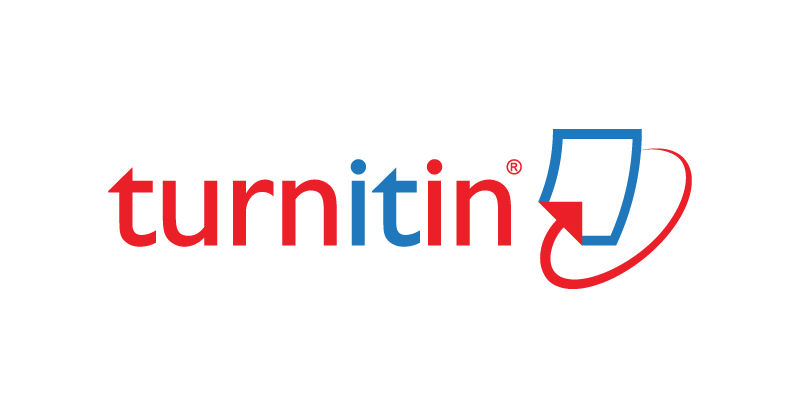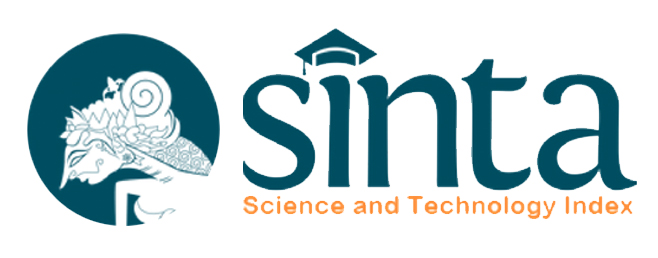DIET AND GENERATION Z PERSONALITY: A SEMIOTIC ANALYSIS OF YULIA BALTSCHUN’S YOUTUBE CONTENT
DOI:
https://doi.org/10.33603/signal.v13i1.9869Kata Kunci:
Diet, Gen Z, Semiotic, Roland Barthes, YoutubeAbstrak
This study analyzed the diet failure of Generation Z through the lens of Roland Barthes's semiotic analysis using Yulia Baltschun's YouTube content as a case study. The purpose of this study is to identify the meanings shown through the symbols contained in Yulia Baltschun's YouTube account. The research method used is Roland Barthes's semiotic analysis. The results obtained show that the meaning of the denotation displayed on Yulia Baltschun's YouTube account is through diet, exercise patterns, and daily habits. The meaning of the connotation that can be explored from Yulia Baltschun's YouTube account is that a person's attitude in living life determines the success of their diet. In conclusion, revealing the symbols revealed on Yulia Baltschun's account give insight to those who want to have an ideal body with healthy habits. The study also highlights the importance of semiotic analysis in understanding the implicit messages conveyed by influencers on social media. Additionally, the study emphasizes that the interpretation of the meaning of these symbols can vary depending on the cultural background and personal experiences of the audience.
Referensi
Ahmed, B., & Konje, J. C. (2023). The epidemiology of obesity in reproduction. Best Practice & Research Clinical Obstetrics & Gynaecology, 89, 102342. https://doi.org/10.1016/J.BPOBGYN.2023.102342
Allemand, M., & Flückiger, C. (2022). Personality Change Through Digital-Coaching Interventions. Current Directions in Psychological Science, 31(1). https://doi.org/10.1177/09637214211067782
Annesi, J. J. (2024). Effects of cardiovascular exercise on eating behaviours: Accounting for effects on stress, depression‐, and anger‐related emotional eating in women with obesity. Stress and Health.
Baltschun, Y. (2021). I Hate Diet.
Engber, D. (2019). Unexpected clues emerge about why diets fail. In Nature medicine (Vol. 25, Issue 11). https://doi.org/10.1038/s41591-019-0632-y
Fajriani, A., Nugrahani, R. U., & Dirgantara, P. (2021). Pengaruh Channel YouTube Yulia Baltschun Terhadap Pemenuhan Kebutuhan Informasi Diet Sehat Para Viewers-nya. EProceedings of Management, 8(3).
Guthrie, G. E. (2018). What is lifestyle medicine? American Journal of Lifestyle Medicine, 12(5), 363–364.
Hamdany, M. A., & Damanhuri, A. (2017). Speech style used in the workplace in “500 Days of Summer” movie. Language Horizon, 05(01).
Hans, N. (2022). Diet Related Taboos During Pregnancy – A Narrative Review. International Journal of Medical Science And Diagnosis Research, 6(6). https://doi.org/10.32553/ijmsdr.v6i6.942
Jain, P., & Arakkal, J. (2022). Perceived Popularity of TikTok among Gen-Z. Cardiometry, 24, 896–902.
Jamil, K., Baqir, S. R., Fahim, M. F., Lata, P., Khan, B., & Aziz, M. (2023). Management of Obesity through Diet and Exercise: Management of Obesity. DIET FACTOR (Journal of Nutritional and Food Sciences), 20–28.
Khawandanah, J., & Tewfik, I. (2016). Fad Diets: Lifestyle Promises and Health Challenges. Journal of Food Research, 5(6). https://doi.org/10.5539/jfr.v5n6p80
Krüger, F. (2016). The Influence of Culture and Personality on Customer Satisfaction. In The Influence of Culture and Personality on Customer Satisfaction. https://doi.org/10.1007/978-3-658-12557-8
Mahasuweerachai, P., Suttikun, C., & Bicksler, W. H. (2023). From pride to plate: how feelings of pride and guilt lead Gen Z to plant-based consumption at restaurants. Young Consumers, 24(6). https://doi.org/10.1108/YC-12-2022-1658
Matus, P. (2018). Discursive representation: Semiotics, theory, and method. Semiotica, 2018(225), 103–127.
Melisse, B., Dekker, J., Van Den Berg, E., De Jonge, M., Van Furth, E. F., Peen, J., & De Beurs, E. (2022). Comparing the effectiveness and predictors of cognitive behavioural therapy-enhanced between patients with various eating disorder diagnoses: A naturalistic study. Cognitive Behaviour Therapist, 15. https://doi.org/10.1017/S1754470X22000174
Mohd Noor, M., Suyurno, S. S., Nordin, R., Mustafar, M. Z., Md Sharipp, M. T., & Mohd Aziz, M. K. N. (2021). Strategi Komunikasi Efektif Pengguna Facebook Berpengaruh (Facebook Influencer) Dalam Membentuk Budaya Kedermawanan Di Malaysia. AZKA International Journal of Zakat & Social Finance. https://doi.org/10.51377/azjaf.vol2no1.39
Moreno, D. E., Gabatin, R. A., Agleron, M. A., Gavasan, C., Santos, E. H., & Tiongson, S. R. (2023). Penetrating through Distractions: Analyzing the Function of Storytelling Advertisements in Attracting the Focus of Gen Z Customers. Journal of Business and Management Studies, 5(3), 8–24.
Nasrullah, M., & Choifin, M. (2021). Rancang Bangun Mesin Konveksi Paksa Rectangular Tegak Lurus Dengan Pengukuran Suhu Berasis Arduino Mega. Mechonversio: Mechanical Engineering Journal, 4(1). https://doi.org/10.51804/mmej.v4i1.1576
Organization, W. H. (2016). World Health Statistics 2016 [OP]: Monitoring Health for the Sustainable Development Goals (SDGs). World Health Organization.
Petraitis, M. (2019). Be part of history–documentary film and mass participation in the age of YouTube. Research in Film and History, 2, 1–26.
Prasetya, A. B. (2019). Analisis semiotika film dan komunikasi. Malang: Intrans Publishing.
Sacco, G. (2022). The Passionate Beliefs. A Defense of the Cognitive-Evaluative Theory of Emotions. Philosophia, 50(3), 1391–1411. https://doi.org/10.1007/s11406-021-00428-1
Silaban, S. I., Dida, S., & Perbawasari, S. (2019). Personal branding yulia baltschun sebagai diet influencer melalui youtube. Jurnal Komunikasi Universitas Garut: Hasil Pemikiran Dan Penelitian, 5(2), 357–371.
Simonyan, A. H. (2023). From Gen X to Gen Z: Features and main characteristics in the workplace. Region and the World, 176–180.
Taradanov, A. A., Sizova, Y. N., & Ovchinnikov, M. V. (2019). Economic socialization of a personality: definition and content of the concept. Tyumen State University Herald. Social, Economic, and Law Research, 5(2). https://doi.org/10.21684/2411-7897-2019-5-2-75-84
van Etten, D., & Grimaldi, D. (2011). Debunking misconceptions about weight loss surgery. Journal of Psychosocial Nursing and Mental Health Services, 49(12). https://doi.org/10.3928/02793695-20111107-01
Vera, N. (2014). Semiotika dalam riset komunikasi. Bogor: Ghalia Indonesia, 8, 30.
Vyalov, S. S., & Giluk, V. A. (2022). Diet choices and self-preserving behavior: New trends in Paleolithic diet. Medical Alphabet, 1(18). https://doi.org/10.33667/2078-5631-2022-18-14-19
Wang, W. (2021). How has the fashion industry reacted to Gen z’s completely different consumption concepts and shopping habits. Academic Journal of Humanities & Social Sciences, 4(10), 72–80.
Yao, P.-L., Laurencelle, L., & Trudeau, F. (2020). Former athletes’ lifestyle and self-definition changes after retirement from sports. Journal of Sport and Health Science, 9(4), 376–383.
Zuhair Ahmed Saleh, L. D. (2022). Translation of the Color Term between Connotation and Denotation. لارك, 4(47). https://doi.org/10.31185/lark.vol4.iss47.2629
Unduhan
Diterbitkan
Terbitan
Bagian
Citation Check
Lisensi
The Authors submitting a manuscript do so on the understanding that if accepted for publication, copyright of the article shall be assigned to Jurnal Signal, Prodi Ilmu Komunikasi. Universitas Swadaya Gunung Jati as publisher of the journal. Copyright encompasses rights to reproduce and deliver the article in all form and media, including reprints, photographs, microfilms, and any other similar reproductions, as well as translations.
Jurnal Signal, Universitas Swadaya Gunung Jati and the Editors make every effort to ensure that no wrong or misleading data, opinions or statements be published in the journal. In any way, the contents of the articles and advertisements published in Jurnal Kajian Akuntansi are the sole responsibility of their respective authors and advertisers.













